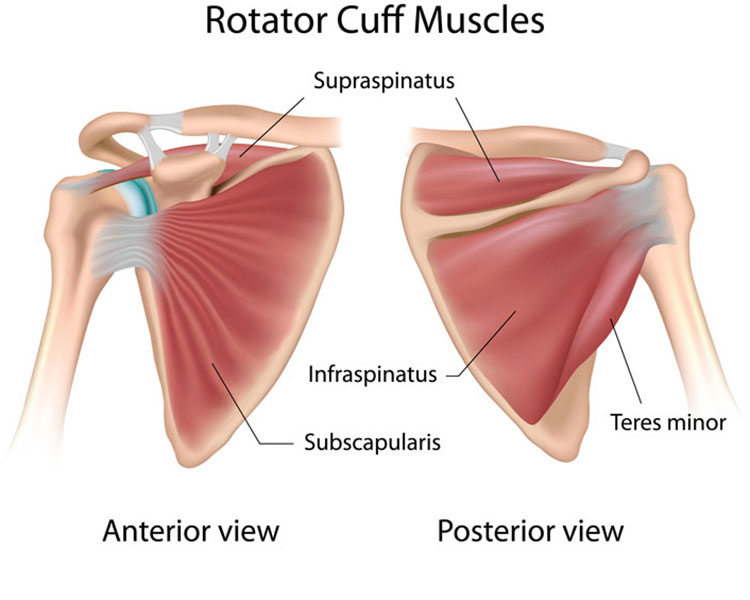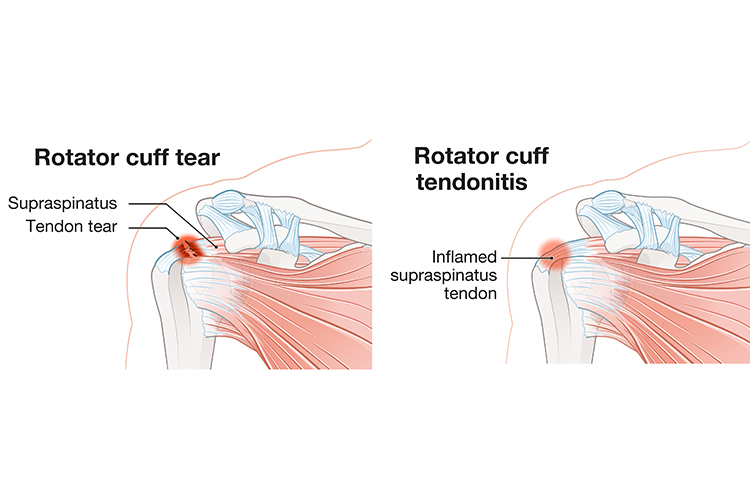Rotator Cuff Tear


What is it : The shoulder is a complex joint where the bones and tendons play an important role in making the shoulder work properly. There are four rotator cuff tendons – supraspinatus, subscapularis, infraspinatus and teres minor. Rotator cuff tears can occur as a result of an injury to the shoulder or as a gradual process through wear and tear, which we call a ‘degenerative rotator cuff tear’. Once the tendon has a partial or complete tear it makes it more difficult for the shoulder to move as it shoulder. There is usually difficulty in raising your shoulder up by your side and out in front. You may have pain and difficulty with overhead activities.
Management : Non-surgical management of rotator cuff tears can be of benefit for some patients and this includes a physiotherapy program which focuses on shoulder muscle strengthening and improving range of motion. Simple pain relief such as paracetamol and anti-inflammatory medications can help with any constant pain. A cortisone injection can reduce any inflammation in the shoulder which may be causing irritation and pain. When the non-surgical management is not helping, then a shoulder arthroscopy can be done and the rotator cuff tear can be repaired if repairable or debrided (cleaned out) if the tear is not repairable. The tear will be repaired using anchors which get placed in to your bone with sutures to fix the tear.
Post-operative : After your rotator cuff repair, you will be placed in a sling for 6 weeks. We need the tendon to heal on to the bone for the repair to be successful. You will only be allowed to do very gentle movements of the shoulder in the first 6 weeks. The next 6 weeks will be focusing on regaining your movement, then 3 to 6 months of increasing your strength.